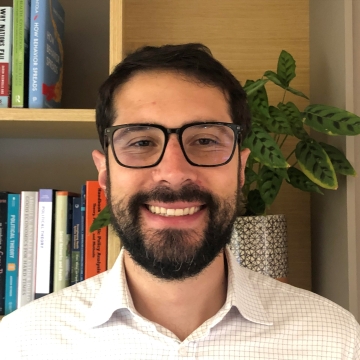Global Health Economics
Latest News



Global Health Economics in the Health Systems Program
Our global health economics work is focused on applying economic thinking and tools to the health challenges faced by low- and middle-income countries. Our faculty have expertise in a range of areas, including health care financing, economic evaluation, behavioral economics, contingent valuation, econometric methods, impact evaluation of health programs, and economic development. Faculty have rich experience working in a range of LMICs and actively engage with global development institutions such as the World Bank and World Health Organization, as well as national governments. We apply economic methods to ensure that health systems in resource-poor contexts can serve their populations in an efficient, effective, and affordable manner.
Our faculty use applied skills in economics and econometrics to address a wide range of health issues, such as aging, chronic conditions, access to rehabilitation services, injury prevention, and price transparency and gouging in drug prices. Our faculty have experience in evaluating the broader economic impact of vaccines and vaccination programs, estimating disease burden, incentive design for the health workforce, and researching ways to equitably improve access to affordable health services in resource-poor areas.
Meet some of our global health economics faculty

Antonio Trujillo, PhD, MPP, is a health economist working to improve access to medicines and the lives of seniors with chronic conditions around the globe.

Bryan Patenaude, ScD ’17, MA, researches the sustainability, efficiency, and equity of public health programs and health systems in low- and lower-middle-income countries.

Andres Vecino, MD, PhD '16, MSc, uses economics theory and methods to improve health systems in lower and middle-income countries with a focus on Latin America.

Krishna D. Rao, PhD ’04, MSc, finds ways to improve access to quality health services and financing of health care in low and middle-income countries.
Examples of Latest Projects
Vaccine Economics Research for Sustainability & Equity (VERSE): The VERSE project aims to generate policy- and decision-maker centric statistical and model-based toolkits using cutting-edge methodologies to measure the costs, economic impact, return-on-investment, and equity of vaccine and other public health programs.
Future Health Spending and Treatment Patterns in Latin America and the Caribbean: This project examines the challenge LAC countries face in balancing their universal health coverage aspirations with the need to manage rising health expenditures in the future.
Modeling Dynamic Disease-Behavior Feedbacks for Improved Epidemic Prediction and Response: This project is multi-disciplinary effort to bring together expertise in epidemiology, mathematical biology, systems engineering, economics, and decision science at Johns Hopkins University to develop a new integrated modeling framework that combines traditional epidemiological models of disease spread with economic models of individual decision-making.
Arnold Foundation Project: Faculty are exploring the impact of brand-to-brand competition on prescription drug prices and examining how biosimilars influence competition and the pricing of reference products. Additionally, the research investigates public policies that promote R&D in drug development globally.
Latest Publications and Reports
Coverage and distributional benefit-cost of rotavirus vaccine in Uganda: An analysis of routine health facility aggregated data
Cost Effectiveness and Resource Allocation | November 2024
Trust in government and COVID-19 preventive behaviors
Journal of Economic Analysis | November 2024
Dynamics of biological markets with multiple biosimilar competitors in the United States
Expert Opinion on Biological Therapy | October 2024
On the motivation for pharmaceutical manufacturer coupons: Brand loyalty or customer acquisition?
Health Services Research | September 2024
Future health expenditures and its determinants in Latin America and the Caribbean: A multi-country projection study
The Lancet Regional Health | May 2024
